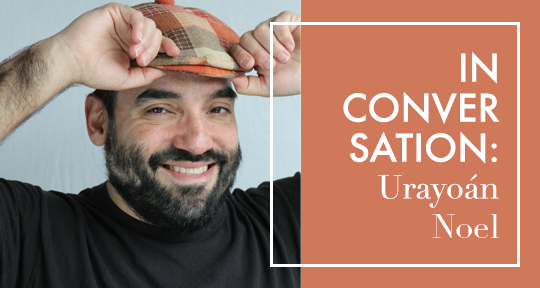In the early days of the pandemic I became obsessed with a little book called Materia Prima (Ugly Duckling Presse, 2019) by Uruguayan poet Amanda Berenguer. Two years later, I’m still returning to it again and again. Berenguer’s poetry, ranging from a classically lyrical style to experimental concrete work, speaks to a certain gruesome dance that defines the intense moments of closure and euphoric freedom of the pandemic era. The poems—particularly her concrete works—contain wells of meaning; they dip into abstraction and yet are completely literal, hung in the spatial galaxy of the page, intimate and infinite, like vessels unto themselves. The English translations, pasted next to the original Spanish, felt like an impossible feat. How, I wondered, was it possible to translate these vessels in which every letter, fluidly molded in Spanish, was essential to their form?
When I interned for UDP in the summer of 2021, I seized the opportunity to chat with one of the translators who had worked on the book, and specifically on these visual poems, Urayoán Noel. Noel is a poet, translator, and professor based in the Bronx, originally from Rio Piedras, Puerto Rico. His poem “ode to coffee/oda al cafe,” named after the iconic Juan Luis Guerra song, deconstructs the relationship between English and Spanish, empire and cash crop, moving in and out of the two languages like a defiant and fluid snake. This is emblematic of the warm and brutal intelligence that Urayoán brings to the act of translation: he is always conscious of, resisting, and emphasizing the neocolonial nature of the translated word, and he has a deep love for language and an understanding of all that it celebrates, erases, amplifies, and reveals.
Noa Mendoza (NM): I thought it might be nice to start out talking about a poem that I’m actually going to get a tattoo of soon.
Urayoán Noel (UN): No way, really?
NM: Yes! This graph one, it’s untitled, but it is a pictorial representation of a beach scene, with a jumble of letters underneath.
I’m wondering what your experience was translating this graph, and, more generally, the incomprehensible. The words in the middle that don’t necessarily hold semantic meaning. And also gibberish more generally, if you ever think about that when it comes to translation.
UN: I think I might make a distinction there. I certainly agree that Berenguer’s language isn’t linear. I’m not sure she’s a poet of gibberish. I think of gibberish as a kind of uncontained language. My sense is there’s always this rigor in her work and a constant struggle between freedom and constraint.


